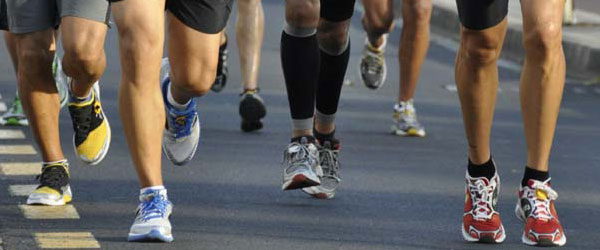The same physical requirements needed for performance as a younger athlete, are required by the older athlete.
Physical Changes Caused by Ageing
Unfortunately, there are significant changes which effect your strength and speed after the age of 50.
Heart
Age brings a decrease in maximum heart rate and an overall decline in maximum cardiac output, or the amount of blood the heart can pump, both of which limit athletic performance.1 In contrast, when younger athletes exercise, the size of the muscle in the walls of the heart chambers increases.2 This, in turn, enhances the force with which the heart can pump, producing a higher cardiac output and, therefore, a lower heart rate. In other words, the heart is able to slow down because it is working more efficiently. In older athletes, heart muscle size is not increased by exercise to the same degree.
Lungs
Aging leads to a decrease in overall lung capacity and a decline in the ability of the lungs to move oxygen from the air into the bloodstream. This means less overall strength and endurance.
Muscles
As we age, we lose both muscle strength and muscle mass. Decline in muscle mass is known as sarcopenia (from the Greek for “loss of flesh”). Most of the muscle lost from sarcopenia is what is known as Type IIa, or “fast-twitch,” muscle fibers.3 Human muscles are classified as either Type I or Type II. Type I muscles are slow to contract and contribute to physical endurance; Type II muscles are faster to contract and are associated with strength and power. As we age, even though we can fight the loss of muscle mass with exercise, we will still be losing these Type II fibers at the same rate. What happens is that instead of developing new muscle fibers from exercise, as we did when we were younger, the remaining fibers merely increase in bulk. In addition, with age we also lose some of our ability to control the firing, or activation, of our muscles. This leads to loss of coordination and strength.
A hot research topic in medicine today is the possible role of testosterone and growth hormone in causing age-related muscle loss. Though naturally occurring in the body, these hormones decline dramatically with aging.4 So far, studies have found that giving older people human growth hormone causes an increase in muscle mass, but not necessarily any increased strength or improved function.
Testosterone replacement seems to increase both muscle mass and upper limb strength. Both remain under investigation as potential treatments for sarcopenia and other age-related problems.
Nervous System
With aging there is a marked decline in blood flow to the brain, which is associated with a decrease in reaction time.
Our sense of balance also deteriorates with aging. Also, many effects of age on the nervous system combine to cause a decline in something called V02 max, or the maximum volume of oxygen consumed by the body per heartbeat. This is also known as oxygen pulse.
VO2 max declines steadily and predictably as we age, on average approximately 1.5% per year. Even though highly trained older athletes show a smaller rate of decline, only 0.5% per year, it is just as steady. In studies of athletes, VO2 max also closely parallels the decline in maximum athletic performance that comes with age. For this reason it has been suggested that VO2 max makes an excellent measure of physiological rather than chronological aging. VO2 is measured with a breathing test. Your physician can tell you how your VO2 level compares to that of others.






















